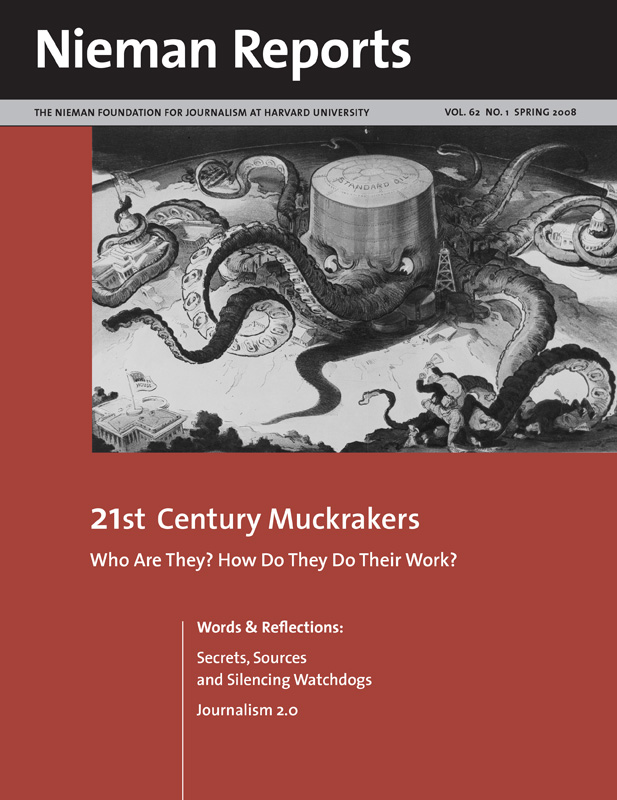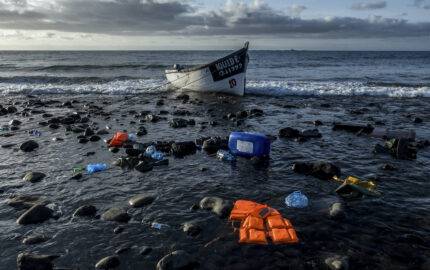Our work began with using a Web template (Adobe Dreamweaver) as the container for the story’s supporting photographs and text, which we wrote in English while we awaited the Georgian translation. An online poll was built into the Web package, added in a few minutes with an inexpensive Web service [see note 1]. Free blogging software [see note 2] provided interaction and feedback for users and, finally, the DV tape Karl had brought back from Georgia was converted to a file [see note 3] and uploaded to our fastest media server.
Once the Web site was constructed, I sent its URL to Alex Kvatashidze to review. With a nine-hour time difference between Kent State and Tbilisi, I didn’t see his response until morning, when his note arrived with bad news. The video wouldn’t play in Georgia even though it looked fine on my Mac, so I began testing the video on other computers and in different browsers. I could find no problem, so I exported it again using different formats with new compression settings and uploaded each for Kvatashidze to try. Each test we did concluded with an e-mail from Georgia containing the same disappointing message, “We can’t see the video.”
The few hours we’d anticipated this project would take stretched into a week. I consulted others for alternatives and insight. “Do you think it’s bandwidth?,” one of my colleagues suggested. “Is the government blocking ports?,” volunteered another. “Maybe it’s a server problem.” Amid this uncertainty, one of my students offered what turned out to be a way to make this work. “I upload my videos to Google—they work great,” he said, referring to the free video hosting service provided by the Internet search engine. Like YouTube, these services make it easy for anyone with an Internet connection to share video with users around the world—even in Georgia. Provide content, and these services provide the server space and resources that allow users to search for and link to your video, submit content, and even embed it in their own Web pages.
After we uploaded the video from Georgia to Google, it worked perfectly.
“In the long run of history, the censor and inquisitor have always lost,” said historian Alfred Griswold. For Georgians, overcoming the censorship of this investigative report was possible in only one week. For me, the experience of finding the best solution reinforced that to teach is to learn twice—from following my student’s guidance to remembering why I always need to keep Ockham’s razor [see note 4] in the top drawer of my own digital toolkit.
AUTHOR'S NOTES
Murray and Idsvoog used www.blogger.com, but www.wordpress.com is a good alternative.
Final Cut Studio was used to capture the video, but free programs, such as Movie Maker and iMovie, would suffice.
Ockham's razor: This principle is often paraphrased as, “All other things being equal, the simplest solution is the best.
Joe Murray is an assistant professor at Kent State University’s School of Journalism and Mass Communication.



